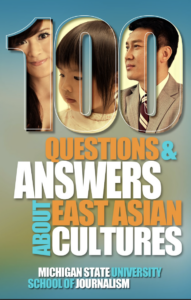Recent news reports about the United States’ trade war with China and Myanmar’s release of two journalists have brought statements about actions calculated to “save face.”
 What does that expression mean and why is it connected to news involving Asian governments?
What does that expression mean and why is it connected to news involving Asian governments?
The concept is an important one in Asian cultures and one that is not well understood among people in the United States. Here’s how the Bias Busters guide “100 Questions and Answers About East Asian Cultures” addresses the issue:
What does it mean to East Asians to “save face” or “lose face”?
Think of this as public humiliation for loss of reputation or stature. One can lose face when publicly corrected or confronted, especially by a peer or subordinate. However, one gains respect when privately bolstered or affirmed. This is more keenly a part of East Asian tradition than it is in America. When the need to save face is strong, it can be difficult to openly admit mistakes or discuss problems. Even in one-to-one conversations and negotiations, people can feel the need to save face. When confronted with a situation of this nature involving an East Asian, consider feelings and not just the facts.
This answer was written for person-to-person communication, but it has cultural implications for nation-to-nation negotiations, as well. When one person or government publicly praises another, respect increases. When it goes the other way, the person or government that is publicly diminished can feel deep offense and be embarrassed in front of peers or supporters in ways that Americans might not understand.



















